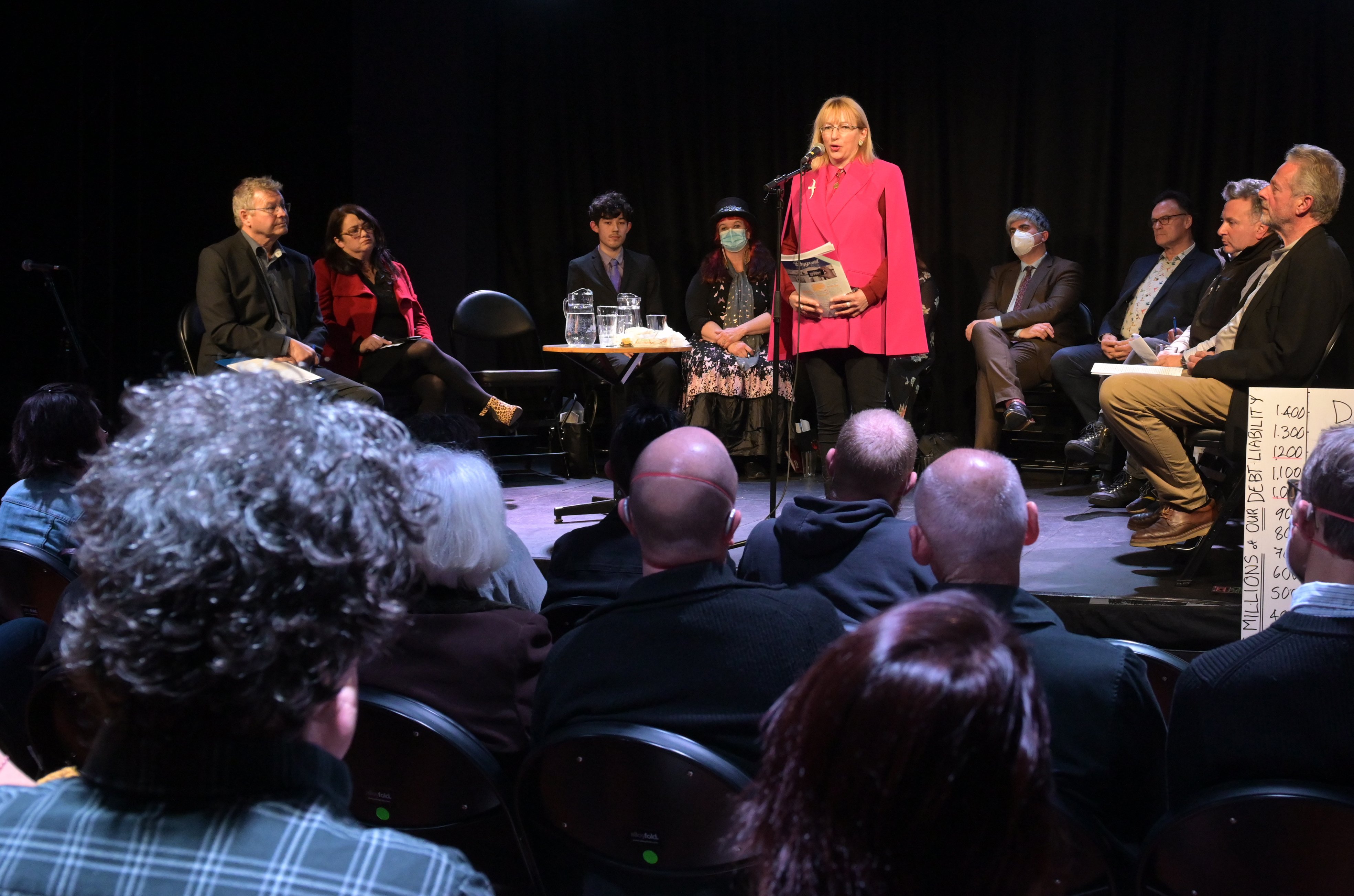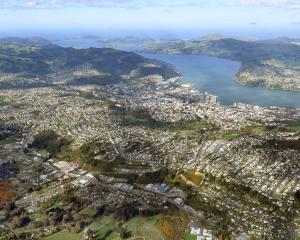
In front of an audience of about 30 mainly arts practitioners at central city theatre space Te Whare o Rukutia, all 11 candidates for the Dunedin mayoralty made their pitches for the arts vote, with varying degrees of success on Tuesday.
Established in 2018, after the demise of the Fortune Theatre, Stage South works to foster professional theatre in Otago and Southland and has been involved in consultation with Dunedin City Council over its AraToi arts strategy and ongoing work around venues in the city.
The group organised the meeting to ensure that issues for the arts in general, and theatre in particular, were highlighted during this election campaign.
The meeting was chaired by Peter Brown, who got straight to the point, asking candidates to introduce themselves and state what their leadership of council would mean for the performing arts in Dunedin.
Cr Carmen Houlahan spoke of her extensive background in arts and related business fields, and said she was keen to push for action on solving the issues for theatre and the arts.
Bill Acklin spoke of his long involvement in the entertainment industry and said, while the needs of various performance forms were different, he was 100% in support of having the right space.
Cr Sophie Barker highlighted her background in tourism and economic development, and said it was her policy to support the arts to flourish, including with a purpose-built venue.
University student Jett Groshinski described himself as a youth candidate and said it was important to actively engage with the public on issues such as the different needs of live music and performing arts for venue space.
Mandy Mayhem-Bullock spoke of her long-standing involvement in the creative arts community, her work to bring performance back into the Octagon, and her determination to push for an artist-led, purpose-built arts centre in the city.
Pamela Taylor spoke of the potential for the arts to attract tourism, and believed a Sydney Opera House-style arts centre on the waterfront would be the best long-term solution.
Sitting Dunedin Mayor Aaron Hawkins acknowledged the toll the pandemic had taken on the arts and said he remained committed to a purpose-built space in the central city, while also seeing the additional need for live music venues.
Funding remained an issue for arts groups and, while the council provided funding, increasing support from other agencies in this area was important, he said.
Cr Jules Radich spoke of his business background and practical skills, and said there had been a disconnect between the council and performing arts. He pledged to actively listen to the community on the need for live theatre and music venues.
Richard Seager spoke of his interest in music, and his family connection to author Ngaio Marsh, while expressing confusion about plans for venues in the city.
David Milne said he had studied economics, education and art, and had a lot of great ideas for enhancing tourism and helping the arts to attract more customers.
After a snappy exchange with an audience member, Cr Lee Vandervis said the ongoing issues around theatre space in the city was indicative of ‘‘council incompetence’’, dating back to the demise of the Fortune. His preference was for the council to redevelop the Mayfair Theatre into a multiuse space.
Introductions over, Mr Brown asked the candidates for their opinions on the $342,000 Charcoalblue performing arts venue feasibility study, and whether its recommendations were still relevant.
Mr Vandervis decried the cost and said it was not relevant, Mr Milne thought it was a waste of money, Mr Seagar thought the Fortune Theatre should have been retained, Mr Radich thought the study was a ‘‘load of nonsense’’ and urged more consultation, Ms Taylor thought it was too costly, Mr Groshinski was not impressed and Mr Acklin said it was a lot of money but not what stakeholders wanted.
Mr Hawkins did not agree with the report’s conclusions, but said it had gathered a lot of information, and a purposebuilt venue was still needed in the city centre.
‘‘I appreciate the frustration, but we need to be careful not to throw the baby out with the bath water,’’ he said.
Ms Mayhem-Bullock disagreed, saying the Charcoalblue ‘‘ship has sailed’’ and the money could have been used to support existing theatre.
Cr Barker said she had concerns about the report and understood why the creative community was ‘‘feeling pretty let down’’.
Cr Houlahan acknowledged many in the audience had been part of the consultation, saying the report had been too expensive and the city did not have the funds to carry out its recommendations.
Along with these set questions, and one about retaining theatre graduates in the city, candidates answered questions from the floor.
The responses to an audience question about the most recent performing arts show they had attended were telling, with some candidates admitting they had not been to a show in years.
Cr Vandervis had been to the Rock Tenors, Mr Hawkins had seen the Summer Shakespeare performance of A Midsummer Night’s Dream, Ms Mayhem had seen Troy Kingi and Delaney Davidson, and Cr Barker had seen The Chills and Anthonie Tonnon.











